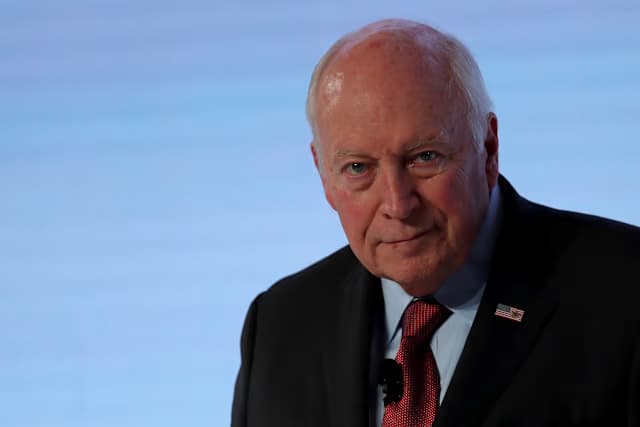We're loading the full news article for you. This includes the article content, images, author information, and related articles.
The death of a key architect of the post-9/11 'war on terror' revives focus on a US foreign policy era whose consequences, including heightened regional instability and the rise of extremist groups, continue to directly impact Kenya's security landscape.

Dick Cheney, who served as the 46th Vice President of the United States and became one of the most powerful and controversial figures in modern American history, has died at the age of 84. His family confirmed in a statement that he passed away on Monday night, November 3, 2025, from complications related to pneumonia and cardiac and vascular disease.
In a statement issued Tuesday, November 4, 2025, former President George W. Bush described Cheney's death as "a loss to the nation and a sorrow to his friends." He added, "I counted on him for his honest, forthright counsel, and he never failed to give his best. He held to his convictions and prioritized the freedom and security of the American people."
Cheney's career in Washington spanned nearly half a century, including roles as a Wyoming congressman, White House Chief of Staff for President Gerald Ford, and Secretary of Defense under President George H.W. Bush, where he oversaw the 1991 Gulf War. However, it was his two terms as vice president from 2001 to 2009 that cemented his global legacy, transforming the traditionally ceremonial office into a powerful center of influence.
For Kenya and the wider East Africa region, Cheney's legacy is inextricably linked to the geopolitical shockwaves of the September 11, 2001 terrorist attacks. As a primary architect of the Bush administration's response, Cheney was a leading and uncompromising advocate for the 'Global War on Terrorism'. This policy doctrine led to the US-led invasions of Afghanistan in 2001 and, most controversially, Iraq in 2003, based on intelligence about weapons of mass destruction that was later proven to be unsubstantiated.
While the immediate focus was the Middle East, the strategic and ideological ripple effects profoundly reshaped the Horn of Africa. The 'war on terror' framework fueled interventions in Somalia, creating a power vacuum that contributed to the rise and consolidation of the extremist group Al-Shabaab. The subsequent and ongoing instability in Somalia has had direct and severe consequences for Kenya, leading to the Kenya Defence Forces (KDF) intervention in 2011 under Operation Linda Nchi and numerous deadly terrorist attacks on Kenyan soil.
Cheney remained a staunch defender of the administration's methods, including the use of "enhanced interrogation techniques" and warrantless surveillance, policies that drew global condemnation from human rights organizations. He expressed no regrets about the invasion of Iraq, stating in 2015 that it was "the right thing to do then" and that he would "do it again in a minute."
Born in Lincoln, Nebraska, on January 30, 1941, and raised in Casper, Wyoming, Richard Bruce Cheney began his political career in the Nixon administration. After his vice presidency, he remained a prominent, albeit polarizing, conservative voice. In his later years, he became a fierce critic of former President Donald Trump, calling him the greatest threat to the American republic in its history. He actively supported his daughter, former Representative Liz Cheney, in her own political battles against Trump's influence on the Republican Party.
Cheney's public life was shadowed by persistent health issues. He suffered his first of five heart attacks at age 37 and underwent numerous cardiac procedures throughout his career. In 2012, two years after leaving office, he received a heart transplant, a procedure he credited with giving him a new lease on life. He is survived by his wife, Lynne, and their two daughters, Liz and Mary.
Keep the conversation in one place—threads here stay linked to the story and in the forums.
Sign in to start a discussion
Start a conversation about this story and keep it linked here.
Other hot threads
E-sports and Gaming Community in Kenya
Active 9 months ago
The Role of Technology in Modern Agriculture (AgriTech)
Active 9 months ago
Popular Recreational Activities Across Counties
Active 9 months ago
Investing in Youth Sports Development Programs
Active 9 months ago